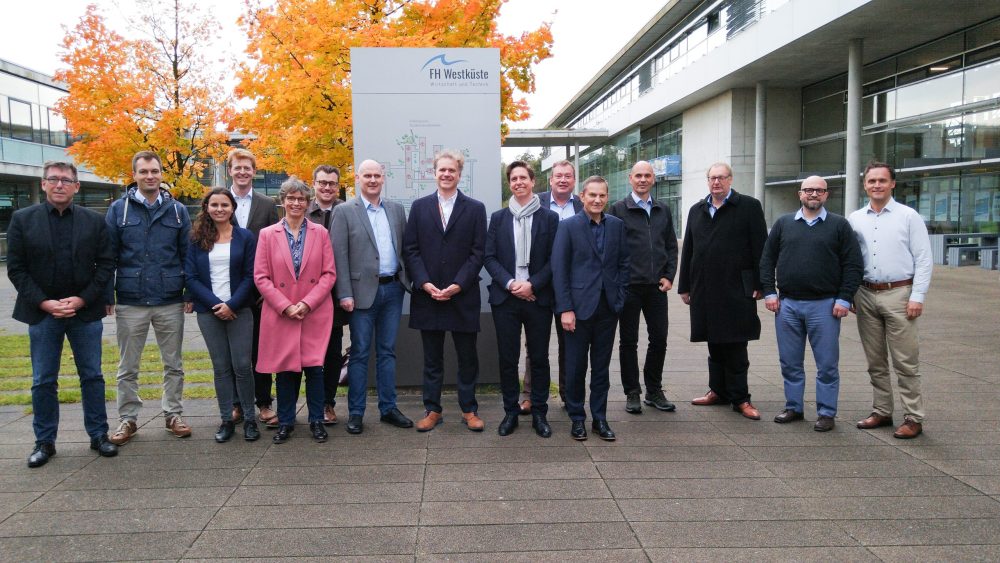(Heide, October 20, 2021) After more than one year of project work under corona conditions, the consortium of Reallabor (real-world laboratory) WESTKÜSTE100 met for its first partner meeting mainly in presence.
Leading company representatives of the cross-industry joint project and representatives of the Federal Ministry for Economic Affairs and Energy (BMWi) and the Project Management Jülich (PtJ) came together for a first personal exchange at the FH Westküste University of Applied Sciences or were connected nationwide.
At the first partner meeting, the agenda included the current status of the main work packages, scheduling and the legal framework. Work on the technical side is running at full speed, with plans for the electrolyzer, cavern and pipeline basically on schedule. The WESTKÜSTE100-project is not responsible for changes in legislation and regulation, which are proceeding less rapidly than the consortium had assumed when planning the project two years ago, but which form important foundations for the implementation of some subprojects. In particular, the future shape of EU regulation (Renewable Energy Directive RED II) remains important for the project. “As a research project, we are on a good way and in close dialogue with the BMWi and the PtJ,” said Jürgen Wollschläger. The BMWi praised the systemic approach and the view of scalability of the “first approved real-world laboratory of the energy transition on the topic of hydrogen,” because, according to Dr. Heffels, “WESTKÜSTE100 inspires!”
Background: The project “Reallabor WESTKÜSTE100”.
The real-world laboratory WESTKÜSTE100 project aims to develop a regional hydrogen economy on an industrial scale in the federal state of Schleswig-Holstein. The core of the project is the research and development approach to produce green hydrogen from offshore wind energy and to use the resulting heat and oxygen. In follow-up projects, the green hydrogen will be used both for the production of climate-friendly fuels (synfuels) and fed into gas grids for heat supply. For fuel production, hydrogen from electrolysis and unavoidable CO2 from regional cement production in Schleswig-Holstein will be used for the manufacturing process.
Further information about the project can be found at www.westkueste100.de
Enquiries:
Alexander Janke | PLÜCOM
Tel. +49 (0)40 790 218 990
aj@pluecom.de

